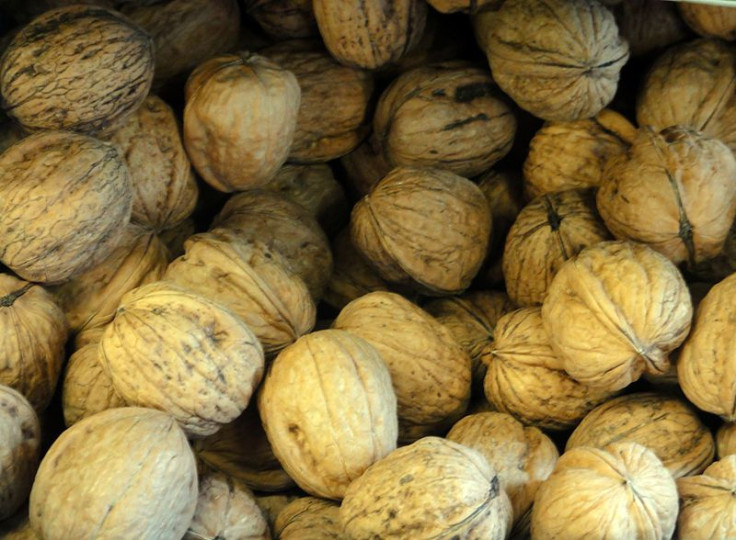Walnuts And Walnut Oil Can Lower Risk For Heart Disease

Coronary heart disease (CHD) is the leading cause of death in the U.S. Each year, more than 400,000 Americans die from the illness, caused by the build up of plaque inside the coronary arteries.
Now, a team of researchers from Penn State, Tufts University, and University of Pennsylvania have found that consumption of whole walnuts or their extracted oil can reduce cardiovascular risk through a mechanism other than simply lowering cholesterol. Study results are now online and will appear in the June 1 issue of the Journal of Nutrition.
In a randomized controlled trial, the researchers gave 15 participants with elevated blood cholesterol one of four treatments: 85 grams of whole walnuts, six grams of skin, 34 grams of defatted nutmeat, or 51 grams of oil. Before the treatments were administered, the team evaluated biochemical and physiological responses in the participants. Then, after administering the treatments, they reevaluated in 30 minutes, one hour, two hours, four hours and six hours. Researchers repeated this process for each of the remaining three treatments.
Results showed that a single consumption of the oil component in walnuts favorably affected vascular health. And eating whole walnuts helped HDL perform more effectively in transporting and removing excess cholesterol from the body. Unhealthy blood cholesterol levels, including high LDL cholesterol ("bad" cholesterol) and low HDL cholesterol ("good" cholesterol), rank among the major risk factors for heart disease.
Further studies are needed to determine the exact mechanisms that account for CHD risk reduction with walnut consumption, according to Penny Kris-Etherton, Distinguished Professor of Nutrition at Penn State. "But, until now, we did not know what component of the walnut was providing this benefit," she said.
According to the researchers, walnuts contain alpha-linolenic acid, gamma-tocopherol and phytosterols, which may explain the positive effects of the walnut oil treatment. "Our study showed that the oil found in walnuts can maintain blood vessel function after a meal, which is very important given that blood vessel integrity is often compromised in individuals with cardiovascular disease," said Claire Berryman, graduate student in nutritional sciences at Penn State.
"The walnut oil was particularly good at preserving the function of endothelial cells, which play an important role in cardiovascular health," said Berryman.
Compared to most other nuts, which contain monounsaturated fatty acids, walnuts are unique because they're rich in n-6 (linoleate) and n-3 (linolenate) polyunsaturated fatty acids. Walnuts also contain multiple health-beneficial components, such as having a low lysine to arginine ratio and high levels of arginine, folate, fiber, tannins, and polyphenols. Researchers have inferred the relation of fat content and fatty acid composition of a diet to the possible development of hardening of the arteries from the decline in cardiovascular mortality during the Great Depression and World War II due to dietary restrictions.
"Our study indicates that simple dietary changes, such as incorporating walnuts and/or their oil in a heart healthy diet, may reduce the risk of heart disease," commented Kris-Etherton.



























